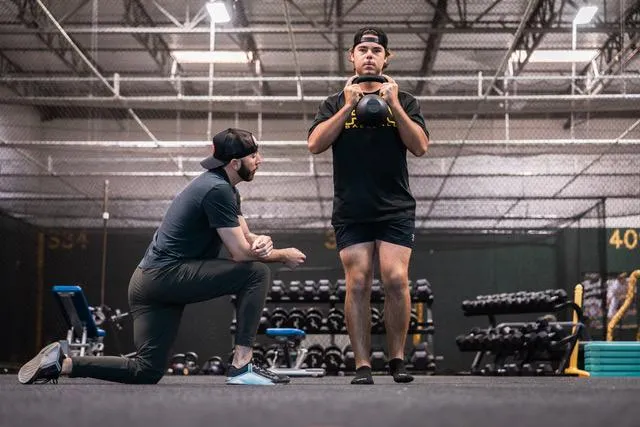
How Long Does Physical Therapy Take? Understanding Treatment Timelines
When you’re injured or recovering from surgery, one of the first questions that might come to mind is, "How long will physical therapy take?" At Forged Physical Therapy & Performance in Montclair, CA, we understand that everyone’s journey to recovery is unique, and the duration of physical therapy depends on a variety of factors. Whether you're recovering from an injury or seeking relief from chronic pain, understanding the treatment timeline can help set realistic expectations and ensure you stay on track throughout your recovery process.
Factors That Affect the Length of Physical Therapy
The length of physical therapy varies from person to person, depending on several key factors. At Forged Physical Therapy & Performance, our physical therapists take the time to assess each patient’s condition and create a personalized treatment plan. Here's a breakdown of the main factors that influence the duration of therapy:
Severity of Injury or Condition: More severe injuries or conditions may require longer treatment plans to help patients regain strength and mobility. For instance, post-surgery rehabilitation may take several months compared to a mild muscle strain.
Type of Injury: Certain injuries, like fractures or joint replacements, typically require more therapy sessions to help patients restore function. On the other hand, soft tissue injuries may need less time for recovery.
Individual Health and Progress: Everyone’s body responds to therapy differently. Factors like age, overall health, and physical fitness play a role in how quickly a person progresses through their treatment plan.
Patient Compliance: Patients who follow their prescribed exercises and therapy guidelines at home tend to experience faster progress. Active participation is essential in ensuring that therapy sessions are effective.

Typical Physical Therapy Treatment Timelines
At Forged Physical Therapy & Performance in Montclair, CA, we often get asked about the typical timeline for physical therapy. While every patient's journey is unique, there are some general guidelines to help you understand what to expect.
Acute Injuries: For minor injuries, such as sprains or strains, physical therapy usually lasts about 4-6 weeks. Treatment focuses on reducing pain and inflammation, restoring range of motion, and gradually strengthening the affected area. Sessions may be frequent in the beginning but taper off as progress is made.
Post-Surgery Rehabilitation: After surgery, the recovery process often takes longer. Post-surgical physical therapy may range from 3 to 6 months depending on the type of surgery. For example, a knee replacement will typically require a longer rehabilitation period than a minor arthroscopic procedure. Therapy will focus on restoring strength, flexibility, and function to help patients return to their normal activities.
Chronic Pain Management: If you’re dealing with long-term conditions such as arthritis or back pain, physical therapy may be an ongoing process. Depending on the severity of your condition, therapy could be required for months, with ongoing maintenance visits as needed to manage pain and prevent flare-ups.
Athletic Injuries: For athletes or active individuals, physical therapy aims to restore function and performance quickly. Depending on the injury's severity, the timeline may range from a few weeks to several months, with therapy tailored to meet specific athletic goals and ensure a safe return to activity.
The Role of Physical Therapists in Determining Treatment Duration
At Forged Physical Therapy & Performance in Montclair, CA, our physical therapists play a crucial role in determining how long your treatment will take. They don’t just create a plan and leave you to it—they actively monitor your progress and adjust the plan as needed.
Initial Assessment: During your first visit, your physical therapist will conduct a thorough evaluation, which may include physical tests, mobility assessments, and a review of your medical history. This helps to determine the extent of the injury or condition and set realistic goals for your recovery. The therapist will then propose a treatment timeline based on their findings.
Progress Monitoring and Adjustments: As you progress through physical therapy, your therapist will continually reassess your condition. If you're responding well to treatment, the therapist may speed up the timeline or introduce more advanced exercises. However, if you're not progressing as expected, the treatment plan may be adjusted to address any roadblocks.
Personalized Treatment Plans: Every patient’s response to therapy is different, so your physical therapist will customize the plan to fit your specific needs. Whether that involves adding more focus to strengthening exercises or incorporating new techniques, the goal is to ensure the best possible recovery time and outcomes.
By having an experienced physical therapist guiding you throughout the process, you can feel confident that your treatment is on the right track and that your progress is closely monitored every step of the way.
How Can Patients Speed Up the Recovery Process?
While the physical therapist at Forged Physical Therapy & Performance in Montclair, CA plays a key role in your recovery, your commitment to the treatment plan is equally important in determining how long your physical therapy will take. There are several things you can do to speed up the recovery process and ensure you get the most out of each session:
Adhere to the Treatment Plan: Your physical therapist will provide you with exercises and activities to perform outside of your therapy sessions. These exercises are essential to reinforcing the work done during appointments and speeding up the recovery process. It’s crucial to follow these instructions as closely as possible.
Stay Active and Engaged: The more active you are in your rehabilitation, the better your outcomes will be. Engage with your therapist during your sessions, ask questions, and focus on the exercises that target your specific goals. Consistent effort and enthusiasm for your recovery can make a significant difference.
Maintain a Healthy Lifestyle: A balanced diet, adequate sleep, and proper hydration all contribute to faster healing. Ensuring your body is well-nourished and rested will help speed up the recovery process. Avoiding smoking or excessive alcohol consumption also supports healing and helps you reach your therapy goals faster.
Communicate with Your Therapist: If you’re experiencing any discomfort, difficulties, or concerns during your physical therapy, it’s important to communicate with your therapist. Early intervention can help address issues before they slow down your progress.
By following these steps, you can help accelerate your recovery and potentially shorten the duration of your physical therapy.
When Should You Expect to See Results from Physical Therapy?
One of the most common questions patients ask at Forged Physical Therapy & Performance in Montclair, CA, is, "How soon will I see results from physical therapy?" While every patient’s experience is different, it’s important to have realistic expectations about the timeline for improvement.
Short-Term Progress: After your initial sessions, you may begin to feel relief from pain or discomfort as your body starts to respond to the treatment. This could happen within the first few weeks, especially if you're addressing issues like inflammation or muscle tightness. For conditions such as sprains or strains, you may notice improved mobility or reduced swelling relatively quickly.
Long-Term Results: For more complex injuries, such as those involving joints or bones, or for chronic conditions like arthritis, it can take several weeks or months to see significant progress. Your therapist may set short-term goals that lead to long-term results, which helps keep you motivated as you work toward full recovery.
Signs of Progress: As therapy progresses, you should start noticing improvements in strength, flexibility, balance, and range of motion. If you're following your treatment plan and engaging in at-home exercises, you may see gradual improvement in function. For example, you may notice you can walk without pain or perform activities that were once difficult.
Remember, consistency and patience are key. Results from physical therapy may not always be immediate, but with time and effort, you’ll likely see significant improvements.
The Importance of Setting Realistic Expectations for Recovery
At Forged Physical Therapy & Performance in Montclair, CA, we believe that setting realistic expectations for recovery is crucial for a successful treatment journey. While physical therapy can significantly improve your condition, it’s important to understand that recovery may take time and isn’t always linear. Here’s why managing expectations is essential:
Individual Variability: Every person heals at a different rate. Factors such as your age, general health, the severity of your injury, and even your emotional state can all impact the speed of your recovery. Some patients may bounce back quickly, while others may need more time. Your therapist will work with you to establish goals that align with your unique situation.
Potential Setbacks: It’s important to be prepared for potential setbacks along the way. Plateaus in progress or occasional discomfort during the healing process are normal. If you’re experiencing a temporary delay in progress, don’t get discouraged. Your therapist will adapt the treatment plan to address any challenges and keep you on track.
Emotional and Mental Health: Recovery isn’t just about physical healing. Staying positive and committed to your therapy can make a big difference in how quickly you bounce back. If you’re feeling frustrated or discouraged at any point, talk to your therapist. They can provide encouragement and help you adjust expectations as needed.
By understanding that recovery takes time and setting realistic goals, you’ll be better prepared for the ups and downs that come with physical therapy. Patience and persistence are key to achieving lasting results.
Why Patience and Commitment Are Key to Recovery
At Forged Physical Therapy & Performance in Montclair, CA, we understand that the road to recovery can feel long and challenging. However, patience and commitment are essential in achieving the best outcomes. While the timeline for physical therapy may vary from person to person, your determination to follow through with the process can make a significant difference.
Whether you’re recovering from an injury, surgery, or managing chronic pain, it’s important to stay consistent with your physical therapy. Trust in the expertise of your physical therapist, stay engaged with your treatment plan, and remember that every step forward is progress.
By setting realistic expectations, remaining committed to your therapy, and staying positive throughout the process, you can maximize the effectiveness of your physical therapy and return to the activities you love in the shortest time possible.
If you’re ready to begin your recovery journey or have questions about physical therapy timelines, reach out to Forged Physical Therapy & Performance in Montclair, CA. Our team of dedicated physical therapists is here to guide you every step of the way.

